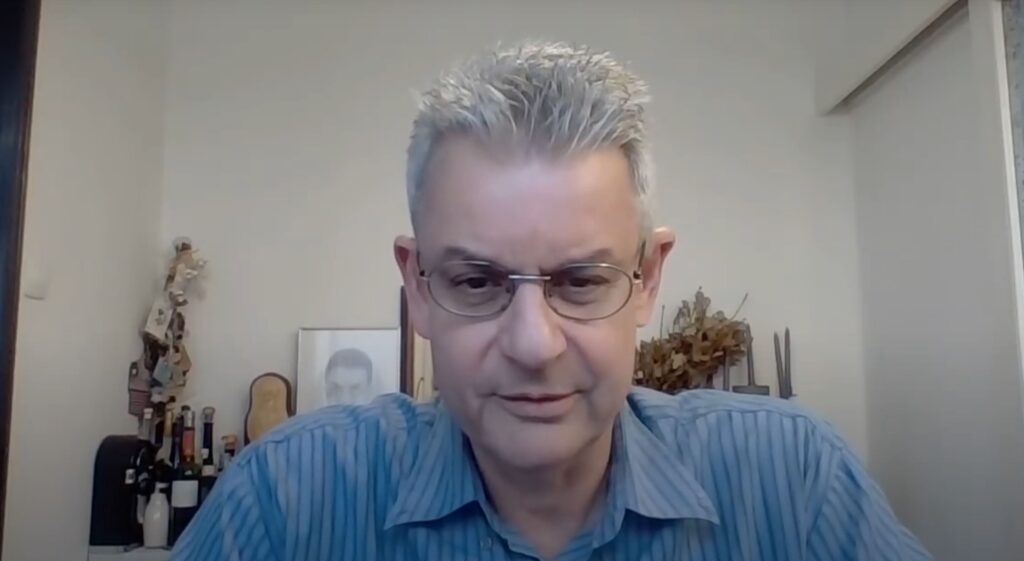Suicide: Why Choose Life, Not Death!
Professor Sam Vaknin discusses the rising tide of suicidal ideation among people of all ages and cultures and provides a philosophical foundation for why people should choose life. He argues that existence is always richer in potential than non-existence and that life is full of potentials because it is complex and because of other people. He also criticizes modern society for presenting falsities, lies, manipulations, and life substitutes that limit people’s promise and suppress their free will. Ultimately, he urges people to choose themselves and realize that their existence alone suffices to steer everyone and everything in another direction and towards an alternative destiny.
Do We Create Reality, Is It a Hive Mind? (with Benny Hendel)
Professor Sam Vaknin discusses the idea that reality is observer-dependent, and that the mind creates reality via the process of intentionality. He suggests that the observer is not naive and does not collapse the wave function, but rather, the observer is not capable of seeing anything else but the collapsed state. Vaknin proposes that the universe has a DNA of order and structure, and that the role of human beings is to observe the universe and via the act of observation, to collapse it, creating order and structure. He suggests that with every act of collective observation, we are cementing the past of the universe, not just the present.
We are Nothing but Time: Chronon Field Theory (with Benny Hendel)
Professor Sam Vaknin discusses his work on chronome field theory, which aims to simplify physics by using time as a force with a field and a single particle called a chronon. The chronon has different excitation states that correspond to various aspects of physics, such as mass and energy. By using these two principles, Vaknin claims that all existing theories in physics can be derived, including string theory and quantum field theory.
Brain Neuroplasticity: Neuroscience Of Self States
Professor Sam Vaknin discusses neuroplasticity and its implications for the concept of a unitary self. He also touches on the four S’s of a narcissist’s intimate partner and delves into various psychological phenomena such as ambivalence, cognitive dissonance, and compartmentalization. Vaknin provides a detailed breakdown of different types of neuroplasticity and their impact on the brain’s ability to change and adapt. He also challenges traditional models of psychology and identity, advocating for a self-states model.
Why I Remain Silent on Depp-Heard Trial (Interview in Superinteressante Magazine in Brazil)
Professor Sam Vaknin discusses the Johnny Depp and Amber Heard trial, stating that he will not comment on it as it is gossip and not academic. He criticizes mental health experts who have appeared on behalf of both parties, calling them unqualified. Vaknin then delves into the psychology of celebrity, explaining that celebrities fulfill emotional functions for fans, allowing them to indulge in wish fulfillment and daydreaming. However, when celebrities deviate from their prescribed roles, fans feel betrayed and humiliated, leading to a desire to punish and humiliate the celebrity.
How Good Parents Turn Bad (ENGLISH 1:33, Turnu Severin Intl. Conference on Psychology)
Professor Sam Vaknin discusses the concept of the “dead mother” and how it relates to dysfunctional parenting. He explains that good enough mothers allow their children to separate and experience pain, frustration, and disappointment. Good enough mothers provide safety, structure, order, predictability, and prepare their children for reality. Vaknin suggests that psychological evaluation should be mandatory for those wishing to have children, and that those with certain mental health issues should not be allowed to have children.
30 Reasons to STAY in Abusive Relationship? NOT!

Professor Sam Vaknin explains why people stay in abusive relationships, including fear, laziness, nostalgia, emotional blackmail, aversion to failure, and a belief that they cannot find anyone better. However, he emphasizes that these reasons are not good enough to stay in an abusive relationship and that people should prioritize their own well-being and happiness. Apologies and promises are not enough to sustain a healthy relationship, and may even be a form of gaslighting if they are intended to skew your perception of reality. Ultimately, the only question to ask is, “Am I happy?” If the answer is no, walk away and don’t look back.
Narcissist’s Relationship Cycle Decoded and What To Do About It – Part 2 of 3
Narcissists create a space in their mind and invite their partners into it, expecting them to fulfill maternal functions. They use extreme abuse to convert their partner from an idealized image to a persecutory object, allowing them to devalue and discard them. Narcissists use entraining to synchronize their brainwaves with their victim’s brainwaves, taking over their victim’s ego boundary functions. They repeat cycles of abuse and hoovering because they fail to accomplish separation and individuation from their intimate partners.
Dystopia: This Horrible Time We Live In
Professor Sam Vaknin argues that modern society is experiencing the worst period in human history due to the breakdown of institutions and the rise of negative trends such as splitting, magical thinking, entitlement, and distrust. He highlights the unprecedented nature of these trends and their impact on relationships, mental health, and societal stability. Vaknin warns that if humanity does not address these issues, it may face dire consequences and suffering.
Express Constructive Anger, Not Narcissistic Rage!
Professor Sam Vaknin discusses the constructive expression of anger and the difference between anger and narcissistic rage. He emphasizes the importance of honest communication, describing one’s state of mind, and asking for change as constructive ways to express anger. He also delves into the characteristics and manifestations of narcissistic rage, highlighting its internal nature and its impact on the narcissist’s behavior and relationships.